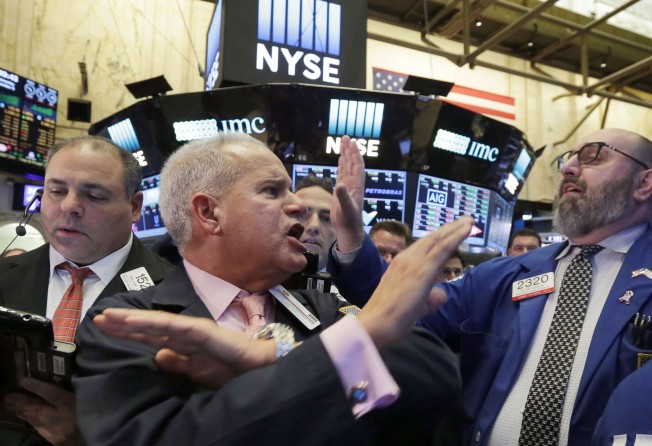Harris’ First Law of Investment: Quarter’s end is the harbinger of change
Put it down as one of the quirks of behavioural finance. The last quarter of 2016 was a boom - expect the markets to change sentiments around New Year’s Day

Once upon a time, a very very long time ago, I think it was around 27th September 1990, I found myself in Munich listening to the chief economist of a big (but long-forgotten) German bank.
It was one of my favourite conferences with company presentations that, as an investment manager and analyst I could get my teeth into.
After a day’s hard work, Europe’s finest minds would then get their teeth into bratwurst and sauerkraut to settle themselves for an arduous evening at the Munich Oktoberfest and a stein or three of Bavaria’s finest amber nectar.
The Berlin Wall had just fallen and my firm, Jardine Fleming (another much lamented lost banking name), had raised a big US$30 million fund from Hong Kong and Taiwanese investors to invest in the unified Germany.
The spectacular picture of an East German soldier jumping over barbed wire to freedom in 1961 is still my favourite investment product advertisement.
I was appointed fund manager of the Germany Trust with responsibility far beyond my then limited experience.
Nevertheless, I considered myself rather a specialist on Europe having been a stockbroker for some years talking to clients in Asia.
In those days, Europe (even Germany and France) were considered emerging markets, even though they were full of mature companies in interesting sectors.
I had a touch of beginner’s luck. I had kept my exposure to the German banks low (they were a big 25% of the index) and as they tanked following German reunification, my fund outperformed.
We had another secret weapon. We had begun to hedge portfolios with index futures. It was novel to use them in portfolios and meant that Jardine Fleming unit trust managers hedged assets at a time when most people thought hedge funds were merely a thicket in a garden centre.
I sold futures that were listed on the German exchanges such that I would profit if the German DAX index fell. This profitable position would balance the losses made by the German shares in my portfolio that had been falling solidly for eight or nine months.
My cunning plan meant that I massively outperformed the market in my first year as a fund manager. I felt like the little boy who put his thumb into a pie and pulled out a plum thinking, “What a good fund manager am I!” I had finally found my métier and was indeed a star fund manager.
Back to the conference; taking place just three years from the world’s biggest market crash in 1987 and after a 25% fall in the German market in three months. At the end of his dry presentation the German economist said, “We zink zat ze market is at ze bottom”.
Boy, we laughed till we cried! He had them rolling in the aisles. What an amusing speaker. He was talking the bank’s book but it was still funny. After all the market has gone south for the best part of a year and there were no signs of recovery.
But you know; the market pretty well turned on 1st October 1990. Despite my hasty unwinding efforts, the nature of futures’ volatility is such that my hedge profits evaporated and I had pretty well given back almost all of my performance by year-end.
This year, the US S&P500 index had a most volatile first quarter, falling 12% at first but recovered to end flat at quarter end.
The second quarter saw the index as flat as a board on low volatility. The impact of the US presidential election was too much for the end of the third quarter to have an impact and the market remained flat until the week of the poll, at which point pent up demand drove the index up nearly 10%.
That conference inspired “The Harris First Law of Investment Management”: market sentiment will often inexplicably change at the end of a quarter.
A boom could lead to a consolidation; a bust to a recovery; or perhaps there is no change in share prices at all. Market movements may not occur exactly on the quarter’s end but those dates often subtly signal a turning point in sentiment.
Since that German conference, I have observed that the First Law has rarely disappointed.
Put it down as one of the quirks of behavioural finance.
The last quarter of 2016 had been a boom - expect the markets to change sentiments around New Year’s Day.
Richard Harris is a veteran investment manager, banker, writer and broadcaster. www.portshelter.com